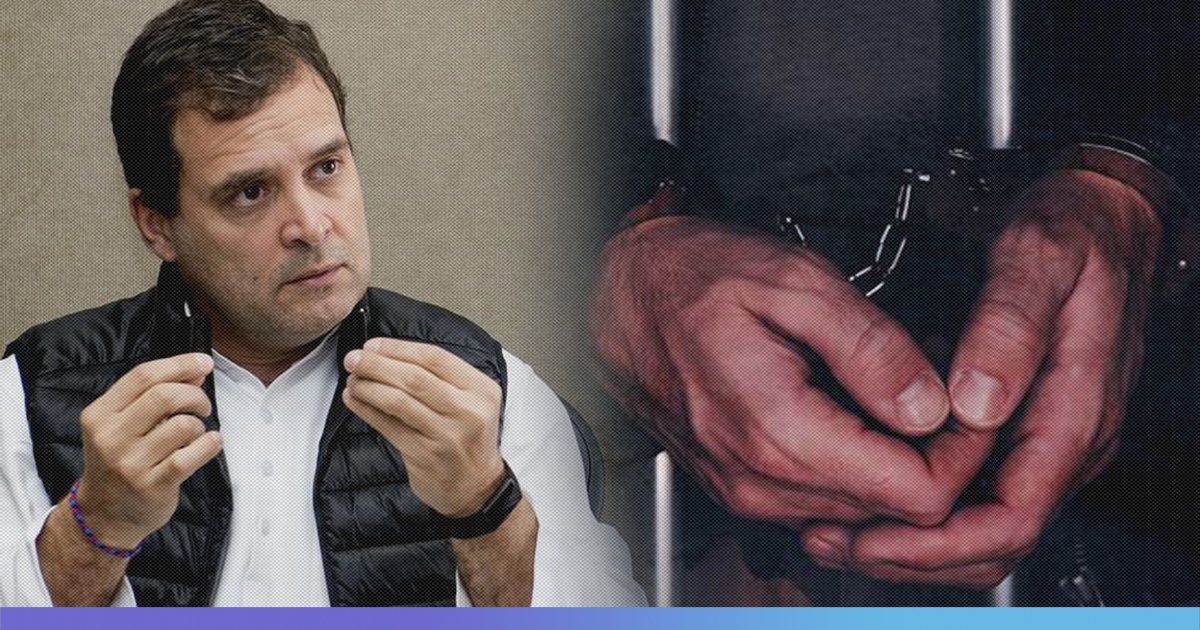When Mahatma Gandhi was charged with sedition, he wouldn’t have thought that even after 70 years after independence, Indians would still live under the same law. Congress which has ruled India for over 50 years, has promised to remove the controversial sedition law if elected to power. The manifesto released by Congress on April 2, 2019, promises that if brought to power, the party will remove Section 124 A of Indian Penal Code (IPC) which defines sedition.
Congress has promised to remove and amend a number of laws, regulations and rules which are either stifling the freedom of citizens or are redundant. It includes the British-era law of sedition.
Under the “Review of Laws, Rules and Regulations” section of the manifesto, Congress has promised to omit the Indian Penal Code Section 124A which has been “misused and, in any event, become redundant”.
What is section 124A?
Section 124A of the Indian Penal Code (IPC) is one of India’s most draconian laws. Introduced by Britain during the colonial period, it has remained in force in our country even after independence. The law that was used to punish Mahatma Gandhi, Bal Gangadhar Tilak, Lala Lajpat Rai and Aurobindo Ghose is today routinely used against activists, writers, cartoonists and other members of civil society.
Section 124A reads thus: “Whoever, by words, either spoken or written, or by signs, or by visible representation, or otherwise, brings or attempts to bring into hatred or contempt, or excites or attempts to excite disaffection towards the Government established by law shall be punished with [imprisonment for life], to which fine may be added, or with imprisonment which may extend to three years, to which fine may be added, or with fine.”
The Section openly criminalises “attempts to excite disaffection towards the government”. Not the country or national security, but any elected government. It doesn’t take a genius to understand that this is a seriously flawed and dangerously loose law.
The Allahabad High Court found Section 124A unconstitutional in 1958 while the Supreme Court (SC) has repeatedly constrained the ambit of the Section and the definition of sedition as well. In many instances, the SC chided the Government and law enforcement agencies for misusing the sedition law. The British – who gave us 124(A) – have all but removed it entirely.
But the reign of Section 124A continues unabated in democratic India, even in the 21st century when most democracies have outlawed most sedition laws because of their spectacular ability to be misused.
A brief history of Section 124A
Section 124A was introduced in the Draft Indian Penal Code by Thomas Macaulay in 1837. Though sedition was not included as an offence when the IPC was enacted in 1860, growing fears over Wahabi extremism in the Indian subcontinent enabled Section 124A to materialise in the IPC in 1870.
The first recorded state trial under Section 124A was in 1892. However, an 1898 case is more significant. This was Queen Empress v. Bal Gangadhar Tilak, and it was this case that defined sedition for the first time and dangerously expanded the scope of Section 124A.
The court ruled that: “The offence consists in exciting or attempting to excite in others certain bad feelings towards the government. It is not the exciting or attempting to excite mutiny or rebellion or any sort of actual disturbance, great or small. Whether any disturbance or outbreak was caused by these articles is absolutely immaterial.”
Throughout the Indian Independence Movement, Section 124A was used to curb free press and imprison freedom fighters, the most notable among these being Mahatma Gandhi, who called the Section the “prince among the political sections of the Indian Penal Code designed to suppress the liberty of the citizens.”
Jawaharlal Nehru called it “objectionable and obnoxious”. (Though the fact that he didn’t have it amended or removed when he became Prime Minister is also objectionable and obnoxious.)
One can argue that sedition in the hands of colonial rulers made sense as they had nothing to gain by championing free speech in India. So let us take a look at how Section 124A fared in independent India.
Also Read: Section 124A: The Most Anti-National Thing In India’s Independent History











